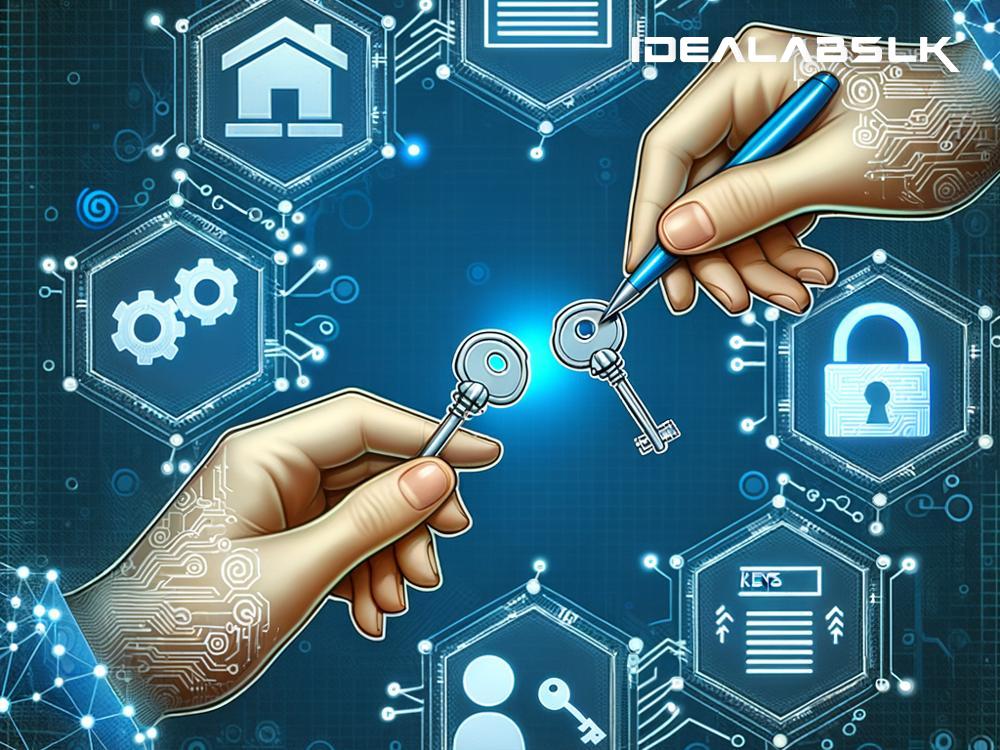Embracing the Future: Blockchain in Property Lease Processing
In our ever-evolving world, technology continuously shapes how we live, work, and interact. One area ripe for innovation is property leasing. For tenants and landlords alike, the leasing process can sometimes feel like a leap back in time, with its paper-heavy procedures and seemingly endless wait times. However, a solution may lie within one of today's most talked-about technologies: blockchain.
So, what exactly is blockchain, and how can it revolutionize property lease processing? In simple terms, blockchain is a type of database technology that records information in a way that makes it difficult to hack, cheat, or alter. It's best known as the backbone of cryptocurrencies like Bitcoin. But the potential applications of blockchain stretch far beyond digital currencies, offering promising benefits for property leasing.
Simplifying Transactions
At the core of its appeal, blockchain can simplify and streamline property leasing transactions. Traditional leasing processes often involve a lot of paperwork and intermediaries, such as real estate agents, lawyers, and banks. Blockchain can consolidate these steps into a single, transparent platform. This means less time spent on document management and verification, speeding up the leasing process for everyone involved.
Enhancing Security and Trust
Security and privacy are major concerns in leasing transactions. With blockchain, every transaction is encrypted and linked to the previous one, creating a secure and unchangeable record. This feature builds trust between parties, as it reduces the risk of fraud and ensures that both tenant and landlord information is protected. The transparent nature of blockchain also means that all parties have access to the same information, reducing misunderstandings and conflicts.
Automating Agreements with Smart Contracts
One of the most exciting aspects of blockchain in property leasing is the use of smart contracts. These are self-executing contracts with the terms of the agreement directly written into lines of code. In a leasing context, smart contracts could automatically enforce and execute lease agreements when certain conditions are met, without the need for intermediaries. For example, the lease commencement could be triggered automatically upon the transfer of a security deposit to the landlord, saving time and reducing errors.
Streamlining Payments
Rent payments are another area where blockchain can innovatively influence property leases. Through cryptocurrencies or blockchain-enabled platforms, payments can be made directly and immediately between tenant and landlord. This method vastly reduces processing times and eliminates the need for third-party payment processors, cutting down on fees and the potential for late payments.
Democratizing Property Leasing
Finally, blockchain has the potential to democratize the property leasing process. By making it easier and more affordable to lease property, blockchain can open up opportunities for smaller investors and those previously excluded from the property market. Furthermore, it can facilitate more flexible leasing agreements, tailored to the needs of a more mobile and diverse society.
Real-world Applications and Future Outlook
Several startups and companies are already pioneering blockchain solutions in the real estate sector, ranging from property listings and transactions to lease management. These early adopters are showcasing the practical benefits of blockchain for both tenants and landlords, pointing towards a future where property leasing is more efficient, secure, and accessible.
However, widespread adoption of blockchain in property leasing is not without challenges. Regulatory hurdles, the need for standardization, and the technology's learning curve may slow down its immediate implementation. Despite these obstacles, the momentum behind blockchain and its capacity to transform the leasing process is undeniable.
Looking ahead, as more stakeholders in the property market recognize the value of blockchain, we can expect to see further innovation and integration. The property leasing process of the future could look very different from today's, thanks to the efficiency, security, and transparency offered by blockchain technology.
In conclusion, while blockchain may currently be more associated with cryptocurrencies, its potential in transforming property lease processing is vast. By simplifying transactions, enhancing security, automating agreements, streamlining payments, and democratizing access, blockchain stands poised to revolutionize the way we think about and engage with property leasing. As we move forward, embracing this technology could lead to a more efficient, secure, and inclusive property market for all.

